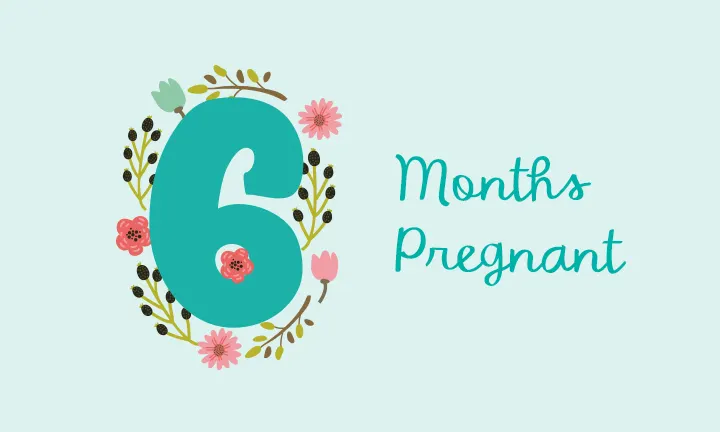6th Month Of Pregnancy - All You Need To Do
At 6 months pregnant, you’re at the tail end of the second trimester. This means you’ll usually have a few more weeks before your tummy gets so big that your energy levels dip. Explore second trimester symptoms & remedies to ensure the well-being of mother & baby
6 Months Pregnant : Common Symptoms
At 6 months pregnant, you might experience some of these pregnancy symptoms. All of these symptoms are common during pregnancy, but you may not experience all of them:
Heartburn
Swollen ankles
Feeling unsteady on your feet
Itchy skin around your tummy, breasts, buttocks, and thighs
Backache
Increased appetite
Nasal problems
Dizziness
Insomnia
Varicose veins
Leg cramps
Six Months Pregnant: Baby Growth & Bodily Changes
Your Baby’s Development: At 6 months pregnant, your baby’s eyelids will open this month, and he will be able to respond to loud noises. Your baby’s taste buds will also be able to taste, through the amniotic fluid, the different flavors of what you’re eating.
Changes to Your Body: By 6 months of pregnancy, you will have gained quite a bit of weight as your baby grows. This will make spending prolonged stretches of time on your feet more uncomfortable, so put your feet up throughout the day whenever you can. Your size might also make finding a comfortable sleeping position more difficult; try using plenty of pillows to support you as you rest. The itchy skin you might feel as your skin stretches can be helped by applying moisturizer.
You might also experience swelling of your feet, ankles, hands, and face — call your doctor right away if the swelling is sudden or severe. Also, try exploring our pregnancy calendar that will guide you through your pregnancy & baby care journey
Get Creative and Organised
Use this time to do productive things like decorating and preparing the nursery, and choosing a baby name. Here are some quirky baby name suggestions that can help you find perfect name for your little one. You can also shop for essentials that your newborn will need, like baby clothes, a pram, and plenty of diapers.
What Does a Fetus Look Like at 6 Months?
Check out these illustrations for a glimpse at what your baby might look like when you’re six months pregnant:

Start Babyproofing Your Home and Car
Now's the time to think about, and make, safety preparations. This month, you can get a jump on babyproofing your home by setting up a safe nursery and tackling other big jobs as well. Once you have brought your baby home, you’ll have even less time, so now is a good time to install baby gates and childproof locks, put dangerous items out of reach, and anchor furniture (like drawers and dressers) to the wall.
It’s also important to babyproof your car during 6th month of pregnancy. First and foremost, you’ll need to shop for an age-appropriate car seat. Once you choose one, get professional help installing it, so it’s all set for bringing your newborn home from the hospital.
Sixth Month of Pregnancy Quick List
Think about your birth plan: Start discussions about your birth plan with your doctor or midwife. Remember, not every factor can be planned for (especially if there’s an emergency), but it helps to think about your preferences and know your options before you’re in active labour. Birthing plans include things like what position you’d like to be in during labour, what your pain management preferences are, what comfort measures you’d like (such as music), and what you’d like to happen straight after your baby is born (for example, who should cut the umbilical cord).
Start babyproofing: Babyproof your home and car, and start to prepare your nursery so that you can get these big jobs out of the way before your tummy gets bigger in the third trimester.
Enjoy your baby shower: At 6 months pregnant, a friend or family member might start thinking about planning your baby shower. This is a chance for loved ones to celebrate your new baby. There can be a theme and some fun games where guests can help with baby name ideas. Here are some a fun baby shower games that you can explore
Read up on childbirth: Even after you attend prenatal classes, you may still have questions or concerns about the birth experience. Read up about childbirth and speak to mums about their experiences.
Relax as much as you can: Although you might feel you have much to organise and do, you should also set aside plenty of time to rest and relax.
